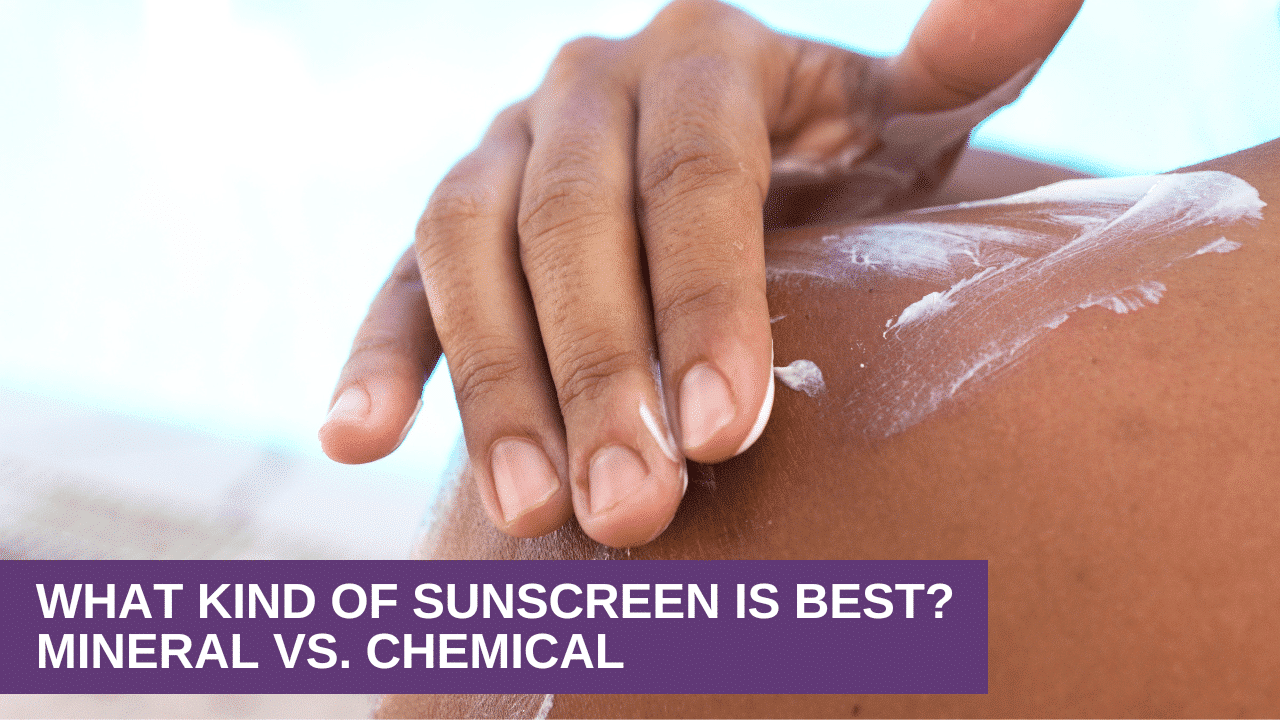What kind of sunscreen is the best — mineral or chemical? Let’s talk about it.
Overexposure to the sun can induce premature aging and skin cancer. So it’s important to protect your skin. Wearing sun-protective clothing is best but if your skin is bare, you may need sunscreen.
Broad-spectrum sunscreen protects against UVA and UVB rays to reduce the risk of both non-melanoma and melanoma skin cancers.
Mineral sunscreens act as a physical barrier that shields your skin from harmful UV rays.
Chemical sunscreens sink into the skin and act like a sponge soaking up harmful UV rays.
Mineral sunscreens use zinc oxide or titanium oxide to shield your skin. Both are deemed safe and effective by the FDA. Zinc oxide is considered safe for people with skin sensitivities and for young children. They are also safe for sea life.
Mineral sunscreens can be chalky, leaving a white cast on your skin and can be difficult to rub in. Mineral sunscreens need to be reapplied frequently.
Unlike mineral sunscreens, chemical sunscreens do not leave a film on your skin. But the heat that is generated by the active ingredients’ absorption of UV rays can cause sensitivity reactions in some people.
Unfortunately, chemical sunscreens UV filters are absorbed systemically even after one application. These active ingredients pass through the skin, into the bloodstream, and are detectable for up to three weeks. Chemical sunscreen ingredients have been detected in breast milk.
Chemical sunscreens have been shown to cause endocrine disruption and neurotoxicity. The route appears to be via the hypothalamus as it is not protected by the blood-brain barrier and controls hormone production. Therefore, long-term use of chemical sunscreens can contribute to hypothalamus dysfunction.
Sunscreens can block the skin’s ability to convert sunlight into Vitamin D which is crucial in immune function and hormone receptor site activity.
In conclusion, while using sun protection is important to prevent aging and skin cancer – physical barriers like clothing and hats, swim shirts, and mineral sunscreens are a safer option than chemical sunscreens.
If you have any questions regarding sun protection, please join us in our Hormone Reboot Training.
Resources:



Thank you. Very relevant